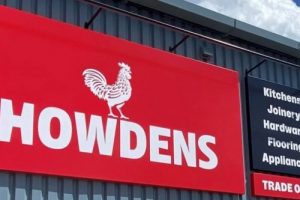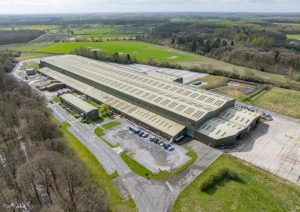Gradual re-shoring of manufacturing continuing – EEF/Squire Sanders

THE gradual trend towards re-shoring production in-house and sourcing UK based suppliers is continuing, according to a major report released today.
According to the report, Backing Britain – a manufacturing base for the future, which has been released by EEF, the manufacturers’ organisation and global law firm Squire Sanders, one in six companies have re-shored production back to the UK in the last three years. This compares to one in seven companies in 2009. Furthermore, the UK based supply chain is also benefitting from this trend with one in six companies turning to a UK supplier for parts and components.
The survey also shows this gradual trend is set to continue with 6% of companies saying they are planning to re-shore production in the next three years.
EEF chief executive, Terry Scuoler, said: “The trend may be gradual but is highly encouraging to see more re-shoring continuing. While it will always be two-way traffic, the need to be closer to customers, to have ever greater control of quality and, the continued erosion of low labour costs in some competitor countries means that in many cases it makes increasingly sound business sense.
“It is now key that government policy supports the most competitive business environment possible so that we continue to see more high value innovative manufacturers invest in and sell from the UK.”
Karen French, partner in Squire Sanders’ global manufacturing industry group in Leeds, added: “This report highlights the cyclical nature of manufacturing. Whilst moving any manufacturing across borders is a significant decision for management, strikingly the report shows that this is not motivated solely by cost, but often to improve the quality of what is being produced and enhance customer service.
“With a long history of manufacturing in Yorkshire, local businesses have established a reputation for making high quality products, particularly in specialist areas that are seeing a resurgence such as textiles and the steel industry, and re-shoring is testimony to their achievements, once again giving UK manufacturing a competitive edge in a global market .”
Other key findings include that China is the main country to re-shore from followed by Eastern Europe and the main reasons for re-shoring are improved quality closely followed by issues surrounding delivery and minimised logistics costs.
According to the survey, companies are seeing clear, albeit moderate, benefits from re-shoring production with 40% of companies having seen their turnover increase as a direct result, whilst only 3% had seen a fall. Furthermore 60% of companies had seen profits and employment increase, again albeit to a moderate extent.
The benefits are also flowing down into the supply chain with 37% of companies receiving an order in the last three years from a customer for a product previously sourced from a low cost competitor. Companies in the supply chain also reported benefits to turnover, profit and employment, again to a moderate degree.
The report makes the following recommendations for government to keep the momentum of re-shoring going and capture as much high value manufacturing in the UK as possible:
– A commitment to keep UK energy costs at, or below, the EU average
– Continued progress on reform of the skills and apprenticeship structure to create a truly demand led training system
– Providing certainty over future business tax reforms, including a review of the capital allowances regime
– Being clear about reform priorities in Europe and leading a coherent and informed debate about the UK’s future in the EU.








